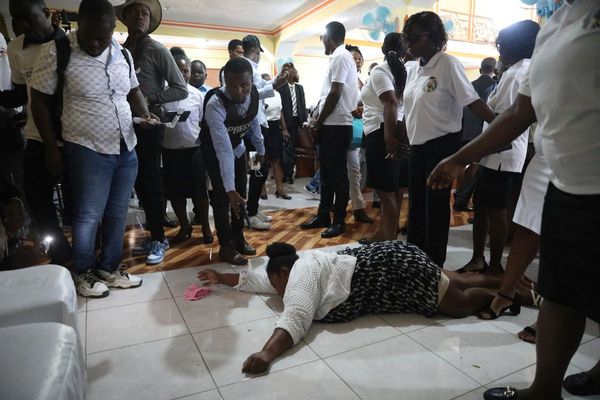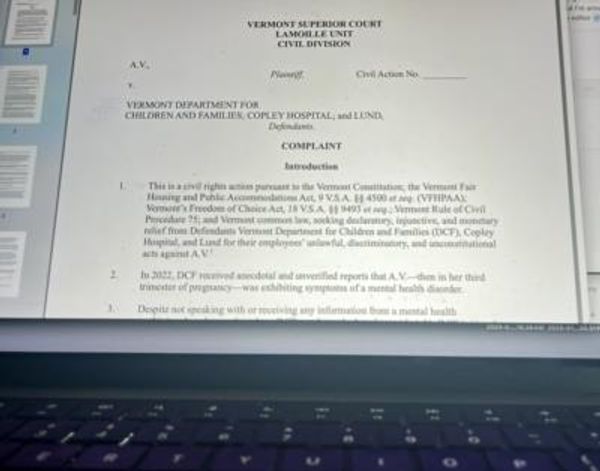
Hundreds of women who have been imprisoned have, with human rights organisations, lawyers and activists, written an open letter calling on the organisers of a high-level conference in Rwanda this week to include female incarceration as a key topic.
Current and former female prisoners are excluded from discussions on women’s rights, they say. This has led to a lack of the funding and policy reforms needed to address the alarming increase in the criminalisation of women and the number of children detained with their parent.
The number of women and girls in prison has grown by almost 60% since 2000, nearly three times the increase in the male prison population of about 22%. The global female prison population increased by more than 100,000 in the 10 years up to the end of 2020. Evidence shows women’s incarceration is closely linked to domestic violence, poverty and discriminatory laws.
The acclaimed Zimbabwean author Tsitsi Dangarembga and the Ugandan human rights advocate and poet Stella Nyanzi are, with Amnesty International and Human Rights Watch, among nearly 250 signatories calling on the organisers of the Women Deliver conference, which begins in Kigali on Monday, to ensure “high-level forums on women’s rights are inclusive of all women”.
Women Deliver, which emerged out of the sexual and reproductive health movement, has grown into one of the world’s most high-profile organisations promoting gender equality and the rights of women and girls.
The letter, signed by 115 organisations from across the world, also calls for action by those involved in the six “action coalitions” launched at the Generation Equality Forum in 2021, where five-year plans to speed up progress were launched.
The forum, hosted by UN Women and the governments of Mexico and France, was the largest to be held on women’s rights in 25 years. Billions of dollars were pledged by philanthropists and governments to support gender equality. But, the letter says: “A key group of women and girls were left out of this process – criminalised, incarcerated and formerly incarcerated women.
“Women with lived experience of the criminal justice system were invisible throughout the forum,” it added.
A midpoint meeting to assess progress towards the Generation Equality goals will be held in September.
Susan Kigula, a signatory to the letter who was wrongly convicted for the murder of her husband and spent 16 years in prison before becoming a lawyer in Uganda, said it was sad that organisations and individuals still looked down on women who went to prison and did not include them in policy decisions.
“You don’t have to punch someone a second time by rejecting them and not wanting to associate with them. We are all human beings,” she said.
“People should understand formerly incarcerated women need to be included. These people should not be judged by their past.”
The letter, coordinated by Women Beyond Walls, a platform to end over-incarceration and over-criminalisation of women worldwide, says applications submitted by some of the signatories to hold an official event on the issue at Women Deliver, which thousands of people are expected to attend, including ministers and UN officials, were not accepted.
The signatories call on member states, UN agencies, intergovernmental bodies and organisers of future high-level assemblies, including the forthcoming midpoint meeting and the United Nations’ Commission on the Status of Women in March, “to ensure that women’s incarceration is included as a priority topic”.
Claudia Cardona, director of Corporación Mujeres Libres, an organisation that defends the rights of women affected by the prison system, said society considered women in prison or who had been in prison as not worthy of being heard. “However, we have the lived experience to enable us to construct a world where all women are given opportunities and have their rights protected,” she said.
Cardona, who spent almost a decade in prison, added that ignoring this group of women had direct repercussions. “It limits policy reform, [our ability to] obtain funding and [stops us] building our movement, which aims to build global solidarity and elevate the voices, experiences and ideas of women who have been deprived of their liberty,” she said.
Research by Women Beyond Walls revealed that more than 60% of organisations working with women in prison were in a precarious financial situation, with more than a quarter saying they may be unable to continue operating due to a lack of funds. More than 70% said they did not receive any funding from women’s rights or feminist foundations.







